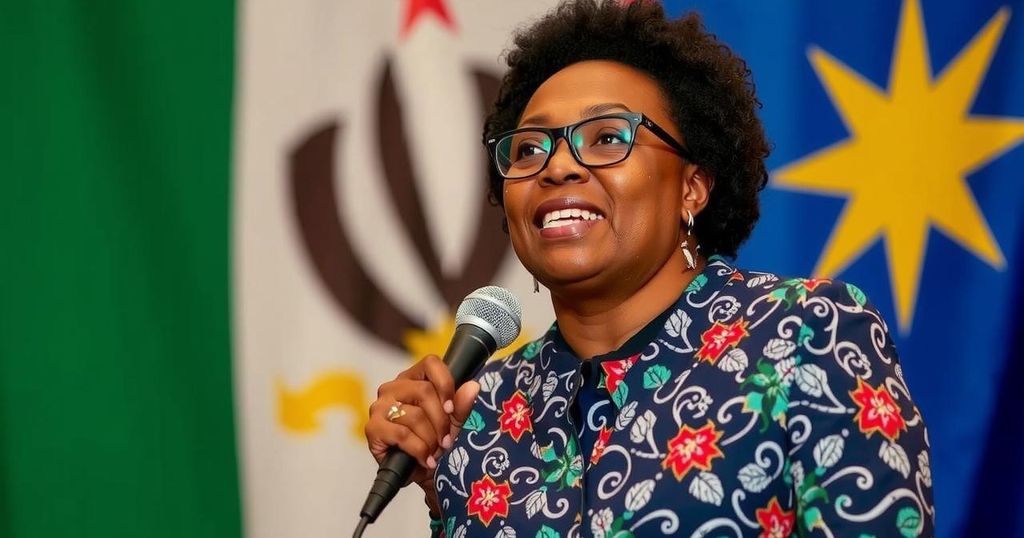Namibia Makes History with Election of Its First Female President

Namibia has elected its first female president, Netumbo Nandi-Ndaitwah, with 57% of the vote amidst controversial election circumstances marked by logistical failures and opposition criticism. While her party retained a slim parliamentary majority, calls from opposition parties for electoral reform and legal challenges to the election process introduce significant uncertainties into Nandi-Ndaitwah’s presidency.
Namibia has made history by electing its first female president, Vice President Netumbo Nandi-Ndaitwah, who won the recent presidential election with 57% of the vote, surpassing expectations that a runoff would be necessary. Despite the victory, the election faced significant challenges, including technical issues leading to a three-day voting extension. Opposition parties have criticized the election as unconstitutional, with some planning to challenge the results legally. Nonetheless, Nandi-Ndaitwah’s SWAPO party maintains a narrow parliamentary majority, continuing its long-standing influence since the country’s independence from South Africa in 1990.
The election was characterized by logistical difficulties such as shortages of ballots, which resulted in extended voting hours that some opposition leaders claim disenfranchised voters. The Electoral Commission of Namibia has dismissed calls for a new election, further intertwining Nandi-Ndaitwah’s presidency with controversy surrounding the electoral process. She has urged a focus on peace, stability, and youth empowerment in her inaugural address.
The election of Namibia’s first female leader marks a significant milestone in the nation’s political landscape and broader regional dynamics in southern Africa, which have seen historic shifts in power among long-ruling parties. Namibia has enjoyed a reputation as one of Africa’s more stable democracies, yet the recent election process was hindered by logistical problems and subsequent dissatisfaction among opposition parties. Amid growing economic challenges and public discontent, calls for political transformation resonate throughout the region, exemplified by similar electoral upheavals in neighboring countries such as South Africa and Botswana.
In conclusion, Netumbo Nandi-Ndaitwah’s election as Namibia’s first female president signifies not only a potential turning point in the country’s leadership but also reflects the underlying tensions following a controversial election process. As disputes over the legitimacy of the election unfold, the future of Nandi-Ndaitwah’s administration will heavily depend on addressing the concerns raised by opposition parties and responding to the pressing socio-economic issues faced by the Namibian populace. The outcomes of this election may have enduring implications for Namibia’s political stability and democratic integrity.
Original Source: www.seattletimes.com







